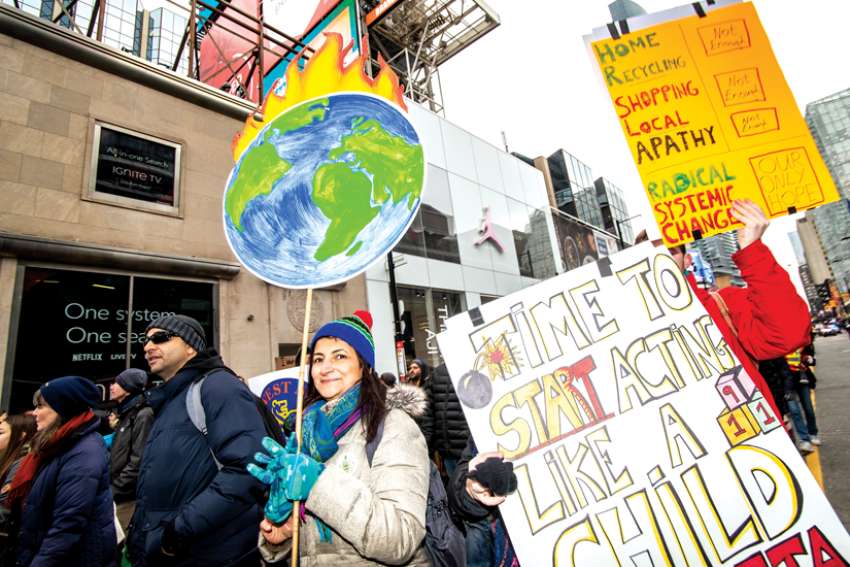They carried with them a message for their own governments (federal and provincial) and for delegates to the United Nations Climate Change Conference being held Dec. 2-13 in Madrid.
Climate strike protesters were loosely organized under the hashtag #FridaysForFuture and it was a scene played out in cities around the world where people, especially the young, have embraced the grassroots movement to force governments to act on climate change.
They had plenty more arguments to back up the cause, having just heard from the UN Environment Program’s 2019 Emissions Gap Report published Nov. 26. It said that unless governments around the world increase carbon limiting efforts 500 per cent, unless global greenhouse gas emissions fall by 7.6 per cent each and every year between 2020 and 2030, the world will miss its chance to get on track toward the 1.5-degree goal of the Paris Agreement.
The report also noted that 78 per cent of the global greenhouse gas emissions are from the G20 nations. Seven of those countries are not on track to meet their 2030 commitments on emissions, including Canada.
Delegates from almost 200 countries are in Madrid to agree on the rules that will put the 2015 Paris climate accord into effect. The protesters in Toronto and cities around the world were demanding tangible results from the week-long talks.
Young faces in the crowd held signs that read, “I’m studying for a future that’s being destroyed,” or “Don’t burn my future” and “If not now, when?”
They looked well fed and comfortable. They were nice, Canadian kids from good homes, studying in good schools. But they were there on behalf of their planet.
Pictures of planet Earth engulfed in flames were the most popular image on protest signs.
For the Catholics in the crowd, it’s a fight for what Pope Francis has called “integral ecology,” a theme explored in the papal encyclical Laudato Si’.
Achieving this depends upon which kind of globalization we end up with — a “globalization of indifference” (to quote Francis once again) or a more profound communion across all the world’s borders and divisions.
“So globalization is not merely a social and an economic phenomenon, to serve the market and economy,” Cardinal Peter Turkson, prefect of the Vatican’s Dicastry for Promoting Integral Human Development, told a Vatican seminar Dec. 3.
“It is a call for a new way of thinking about the human person as called to live a life of love and solidarity in service to others for their wellbeing, which is their development.”
Catholic climate activist Rosemary Boissonneau, one of a legion of elders out to support the #FridaysForFuture kids, pointed out they were marching on the 40th anniversary of St. Francis of Assisi being declared the patron saint of ecology.


